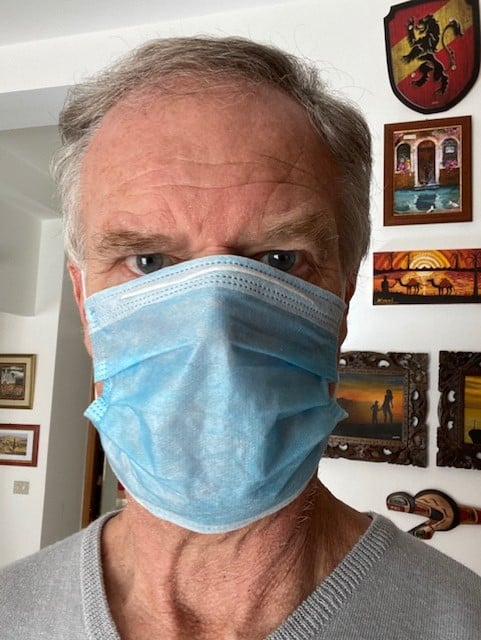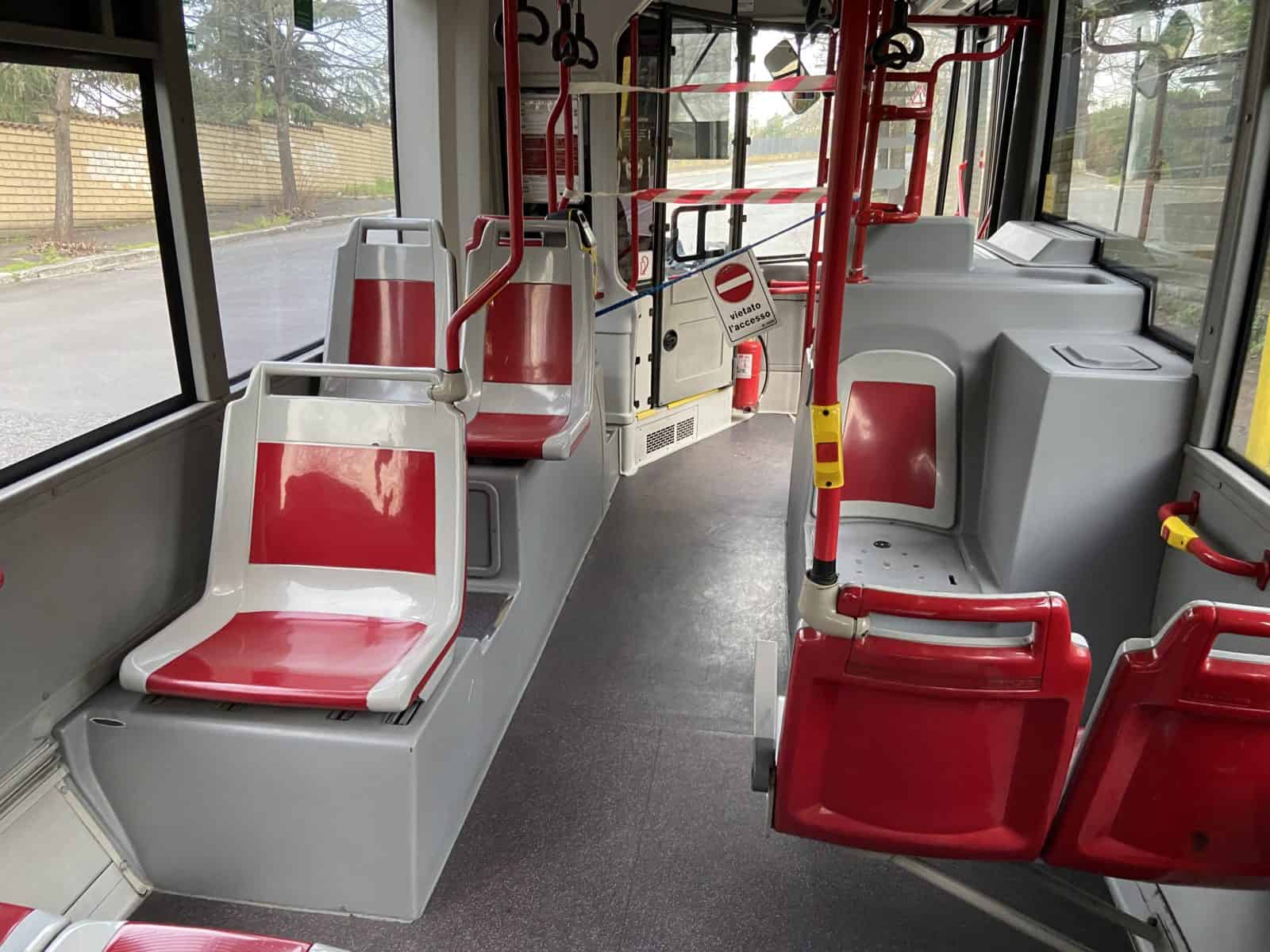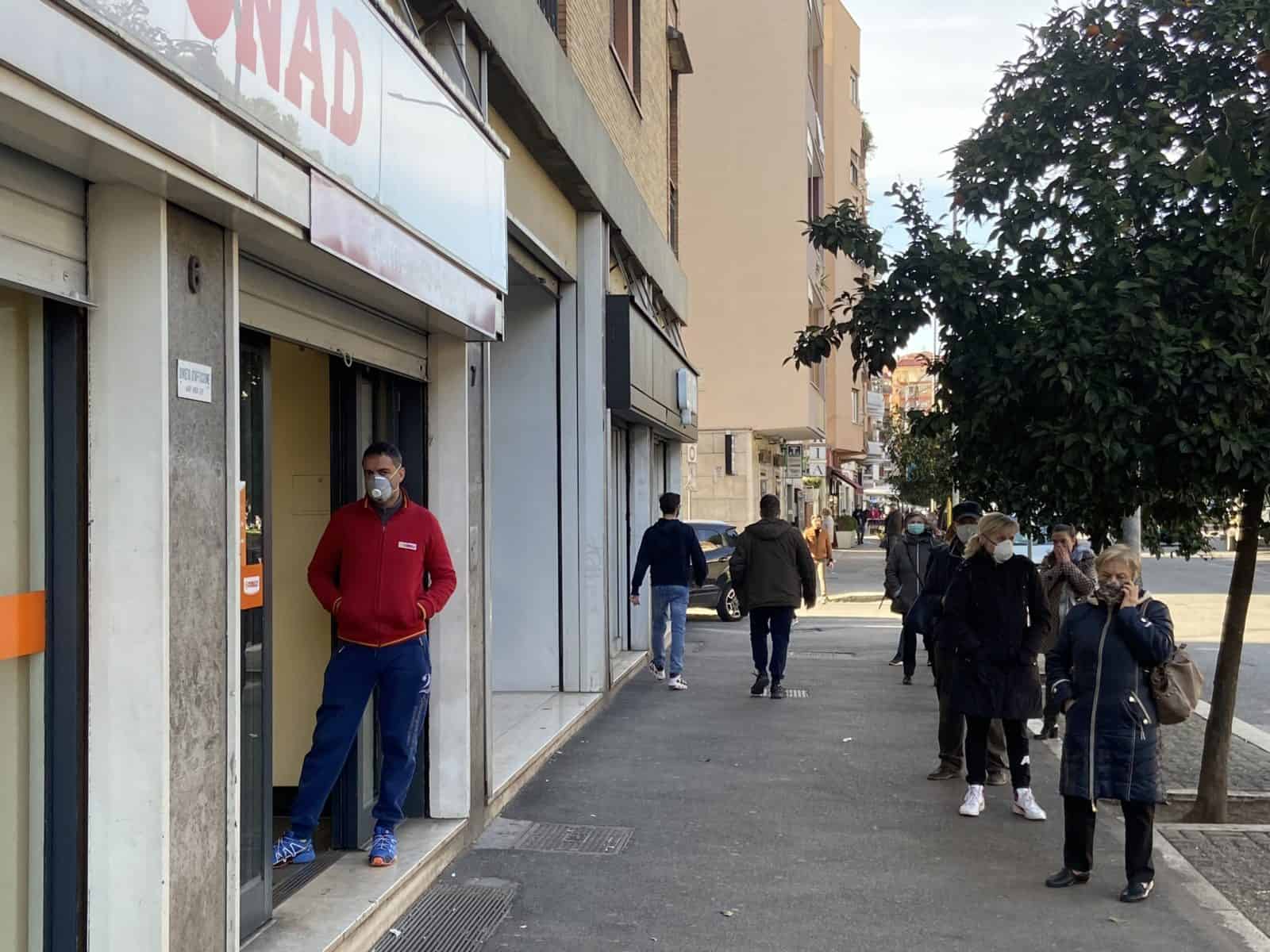Life in Coronavirus lockdown: Italy closes its borders

Tuesday I had to make the risky move of traveling across Rome to a clinic using public transportation. As Italy becomes the western world’s most paralyzed country courtesy of the Coronavirus, I felt like the guy sneaking out of his shelter in a scene from “Night of the Living Dead.” My girlfriend, a third-generation Roman terrified of the virus, begged me to take a taxi. The virus, said to lurk menacingly on the handrails and seats of buses, trams and subways, was going to eat my lower intestine.
I refused. I wasn’t going to spend 75 euros on taxis when I can travel free with my Metrobus card. I promised I wouldn’t touch anything. She gave suggestions on various protective clothing items. Funny, I had no idea she knew what an ice hockey goalie wore.
I did not don the transparent gloves found in my supermarket produce department. I did not wear a mask, not after reading it only works if you have the virus or working with people who do. I did promise I’d wear a mask to the clinic Wednesday. As I left home at 4 p.m. for the first time that day, I saw raw evidence of how a country in total lockdown goes through life.
I passed the supermarket and 14 people were in line, outside, standing one meter apart. A supermarket employee, in mask, stood with them, waving in one person at a time. That morning in the check-out aisle, I was scolded by a masked cashier to move one meter back. I walked onto the bus and no one wore gloves but half wore masks. Rome is about sold out. Many pulled their ubiquitous scarf over their mouth and nose.
The three buses and one subway I took had only a handful of people. From 4-6 p.m. on a normal weekday, Rome’s public transport is cheek to jowl, ass to ass. A vacant seat is as rare as a parking space near the Colosseum. That’s no problem now, either. The Colosseum is closed.
When I reached the clinic, I waited outside with a half dozen others. They wouldn’t let us inside unless we had an urgent appointment. They wouldn’t even let me inside to wash my hands. Instead a masked woman squirted alcohol on my hands and for an hour I smelled like an industrialized bathroom. I waited 10 minutes before the woman came out and handed me a CD for the MRI I had done Monday on my kidney stones. No, I don’t have the virus. This was an unrelated matter.
At least, I don’t think I have it.

This is the problem with living in Italy now. The numbers are multiplying like fungi. Every morning I see the red dot representing the virus growing bigger and darker over the Italian peninsula. I wrote Friday about living in Italy during this crisis. At that time I wrote there were 3,800 cases and 148 deaths.
As of Wednesday Italy had 10,149 cases and 631 deaths. In less than 48 hours, 168 have died.
In Lombardy, the huge northern region where Milan is located, the health care system is one step from collapse, according to CNN. Antonio Pesenti, head of Lombardi’s crisis unit for intensive care, predicted that by March 26 there will be 18,000 sick and 3,000 “who will be needing assistance to breathe.” Lombardy already has intensive care units in hallways of overflowing hospitals. The Italian government said if the virus spreads in the South as it has in the North, it will not be able to cope.
“Our future and the future of Italy is in our hands,” prime minister Giuseppe Conte said.
We just don’t know anything
ABC News interviewed me Monday afternoon and I told them the problem for locals is we don’t know who has it, if we have it, what will happen if we do have it and, for us American expats retired in Italy, we don’t know what will happen to the market if we get it or not.
About five hours later, prime minister Conte locked down the entire country.
The lockdown that began last week in Lombardy stretched all the way south to Sicily. We can’t fly in or out, except for family emergencies although tourists can fly home. Then again, my March 28 birthday trip to Spain was out the window anyway. Earlier, Iberia joined the growing line of airlines that cancelled all flights in and out of Italy.
In fact, the government distributed an online form called an autocertificazioni. It’s to explain why we are out and about, moving from city to city. You must check one of four reasons: work, emergency, doctor’s appointment or returning home. Il Messaggero, Rome’s newspaper which had 13 pages of coverage Wednesday, pictured a man with a mask and roller bag showing his form to three masked Carabinieri at Termini train station.
The paper said it’s a soft enforcement. Nevertheless, I filled in the “motivi di salute (health reasons)” circle and took it to the clinic, just in case.

Through all this, I haven’t heard a single Roman complain. Romans have been through a lot over 3,000 years. The fall of the Roman Empire, the sacking of Rome, World War II, the clash of fascists and communists.
But this virus is different. I sense fear. Everyone is abiding by the rules. I took my tram to Campo de’ Fiori, one of Rome’s most popular piazzas where for centuries they held public executions, and all the restaurants were open but the barkers had hardly anyone to bark at to take a table. Via della Lungaretta, one of the main drags of bustling Trastevere, a major hangout for students and tourists, was empty. Photos in Il Messaggero showed Via del Corso and Via Nazionale, major shopping streets, void of shoppers. Signs on closed businesses read, “Riapriamo a meta’ Aprile. (We reopen in mid-April).”
St. Peter’s Square is closed off.
Changing Romans’ lives
It has polexed the behavior of all 2.8 million of us living in Rome. We are told not to leave home except in an emergency. I feel like I’m in Upstate New York during an ice storm and told to hunker down. Yet I look out my window as I’m writing this and it’s bright sunshine and 63 degrees. I’m spending my time reading about the virus, reading my Francesco Totti autobiography, cooking in, watching the few college basketball games ESPNPlayer.com is showing during Italian waking hours and watching Netflix.
Not that I’m getting desperate for new shows but the other night I watched a two-hour documentary on sawdust.
We have little choice. Bars and restaurants must close at 6 p.m. I can’t go to my local birreria and watch my AS Roma play its Europa League match at Sevilla Thursday night. No matter. The game was called off Wednesday.
I also find myself adhering to the one-meter edict. Everyone stands in line one meter apart. Outside the post office, bakeries, pharmacies. No one complains. Neither do I. In fact, as I left the bus, I found myself swerving to avoid getting within a meter of the man leaving before me. I’m scrambling on escalators to avoid people.
Keep in mind, Italians are arguably the most affectionate people in the world. They invented the term Public Display of Affection. (I think the Ancient Romans termed it “Coitus Minimus.”) Now only couples hold hands. It’s strange to see men and women on the streets of Rome fist bumping each other.
Government applauded
The Italian government, the people’s paddling boy since the time of Augustus, is earning well-deserved props. The two majority parties, the center-left Democratic Party and the right-wing 5-Star Movement, usually exchange gunfire daily. Lately they’ve worked together smoothly for the common good, agreeing to spend 7.5 billion euros to fight the virus. The World Health Organization even praised the government which has now tested more than 61,000 people and set up a hotline number (1500) for anyone who thinks they have the virus (flu-like symptoms of dry cough and fever).
Compare this to the U.S., where fewer than 9,000 have been tested and the president told the people to relax, that the virus will go away when the cold weather does. I wrote a friend in Palm Beach, Fla., and sarcastically said, “Congrats! You’re safe!”
I’m not worried about getting the virus. I’m not part of the target audience. Of the 133 who died in Italy Sunday, 78 were 80 and older, all of whom had preconditions. Another 39 were 70-79. Only 14 were in my 60-69 age bracket.
Selfishly, I’m more concerned about the stock market. Seeing brokers on the floor of Wall Street running around shrieking like it’s the fall of Saigon had me calling my Denver broker on speed dial. I’ve lost 5 percent of my stock portfolio, the bare minimum during this downturn. Many lost 12 percent.
But the stock market has no borders. And this virus plays no favorites. After six years in Rome, I have learned the Italians’ fine art of doing nothing. I always said in the U.S. you learn to work; in Italy you learn to live. Friends. Family. Spare time. Good food. Fine wine. The Coronavirus can’t take any of that away.
They don’t call Rome the Eternal City for nothing.


March 11, 2020 @ 3:18 pm
Hang in there Henyo! We’ll get through this!
Kingfish
April 2, 2020 @ 4:31 am
Thanks for the comment, Hammer. Where are you now? Your community OK? I heard Oregon has been spared the worst. That’s because most of Oregon is educated and Democratic — or is that a redundancy?
March 12, 2020 @ 7:28 am
Thanks for the report from the other side of the Atlantic. It is so hard to imagine bustling Rome so quiet – it would be something to see. I hope you stay well and throw up a good thought now and then for those of us back here in the good ole’ USA as we muddle through this mess.
April 2, 2020 @ 4:30 am
Thanks for the comments, Mary. Sorry this is late. I hope the “tsunami of death” I predicted for the U.S. doesn’t happen but it looks as if it will. Be safe. Don’t hug any old men.
March 12, 2020 @ 2:52 pm
Stay safe!
March 16, 2020 @ 6:22 am
Hey John! I’m retired now to Rome as well! What a welcome to the Eternal City!! After this is over, let’s meet for a coffee 🙂 Without a mask!!
#andratuttobene
Regards, Joyce
April 2, 2020 @ 4:29 am
Hi, Joyce. Sorry this is late. I don’t get notified when I receive comments. Yeah, benvenuti a Roma! With this lockdown, you might as well be in Des Moines. You staying safe? I am — so far. I’m just getting tired of cooking. My array of recipes is woefully short considering I’m in the food capital of the world. But I’m lucky. I am not on a respirator and I’m not looking under seat cushions trying to find loose to change to buy a bag of pasta. Yes, when this ends let’s meet for a coffee — if we’re not too old to lift the cup. When did you arrive in Rome? And what brought you here? Feel free to write me at johnhenrome@gmail.com.
March 22, 2020 @ 5:24 pm
Thanks for the update.